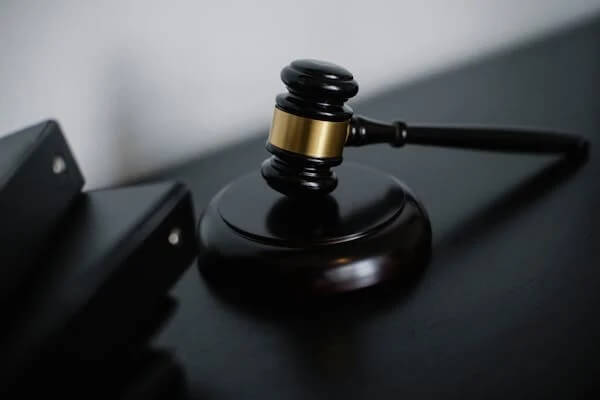Drunk driving is a serious offense that can have significant legal and personal consequences. In the state of Alabama, DUI laws are strictly enforced to protect the safety of all road users. Understanding the nuances of these laws is crucial to avoid potential legal trouble and make informed decisions.
This article provides a comprehensive overview of Alabama DUI laws, covering everything from the definition of DUI to the impact it can have on your driving privileges.
Understanding DUI: A Basic Overview
Alabama takes DUI offenses seriously, with penalties that can include fines, license suspension, and even jail time. In addition to the legal consequences, a DUI conviction can have long-lasting effects on your personal and professional life. It’s crucial to understand the laws and regulations surrounding DUI in Alabama to avoid putting yourself and others at risk.
Definition of DUI in Alabama
In Alabama, DUI stands for Driving Under the Influence. This offense occurs when a person operates a motor vehicle while under the influence of alcohol or drugs. The state defines “under the influence” as having a blood alcohol concentration (BAC) of 0.08% or higher. It’s important to note that even if your BAC is below the legal limit, you can still be charged with DUI if your ability to drive is impaired by alcohol or drugs.

The Legal Limit for Blood Alcohol Concentration
The legal limit for blood alcohol concentration in Alabama is 0.08%. If your BAC exceeds this limit, you can be charged with DUI, regardless of your driving performance. However, if you are operating a commercial vehicle, the legal limit is reduced to 0.04%.
Law enforcement in Alabama uses various methods to determine a driver’s BAC, including breathalyzer tests and blood tests. Refusing to take a BAC test can result in an automatic license suspension, even if you are not ultimately convicted of DUI. It’s essential to be aware of your rights and responsibilities when faced with a DUI stop to navigate the legal process effectively.
The Consequences of a DUI Conviction in Alabama

Driving Under the Influence (DUI) convictions in Alabama can have lasting and far-reaching consequences. In addition to the immediate penalties imposed by the court, such as fines, license suspension, and possible jail time, individuals convicted of DUI may also face challenges in other areas of their lives. These can include increased insurance premiums, difficulty finding employment, and a tarnished reputation within their community.
First-Time Offense Penalties
Being convicted of a DUI for the first time in Alabama can result in significant penalties. These may include fines, suspension of driving privileges, mandatory attendance at a DUI education program, and even imprisonment. The severity of the penalties depends on factors such as your BAC, whether there was a minor in the vehicle, and any prior DUI convictions.
Repeat Offense Penalties
If you are convicted of DUI multiple times in Alabama, the penalties become more severe. Repeat offenders face longer driver’s license suspensions, higher fines, extended jail time, and mandatory installation of an ignition interlock device (IID) in their vehicle. Additionally, subsequent DUI convictions can result in felony charges, leading to even more severe consequences.
It is important for individuals facing DUI charges in Alabama to seek legal counsel to understand their rights and options. An experienced attorney can help navigate the legal process, potentially reducing the impact of a DUI conviction. Additionally, seeking support from counseling or support groups can aid in addressing any underlying issues related to alcohol use and prevent future offenses.
The DUI Arrest Process in Alabama
When a law enforcement officer suspects a driver of being under the influence, they may conduct field sobriety tests and administer a breathalyzer test. Field sobriety tests assess physical coordination and cognitive abilities, while a breathalyzer measures the driver’s BAC. Refusing to take a breathalyzer test can result in an automatic suspension of driving privileges.
Field Sobriety and Breathalyzer Tests
It is important to note that field sobriety tests are not foolproof and can be influenced by various factors such as weather conditions, physical health, and nervousness. The results of these tests can sometimes be challenged in court with the help of a skilled attorney who can question their accuracy and reliability.
Arrest and Booking Procedure
If an officer determines that a driver is indeed under the influence, they will proceed to make an arrest. The driver will be taken into custody, booked, and may be required to provide a blood or urine sample for further testing. It is crucial to comply with law enforcement officers during this process to avoid additional charges and complications.
After the arrest, the driver will be informed of their rights and may have the opportunity to contact a lawyer. It is advisable to seek legal representation as soon as possible to understand the charges and potential consequences. Additionally, understanding the legal process and having a knowledgeable attorney can help navigate the complexities of DUI cases and build a strong defense.



Call Now For A DUI Lawyer in Alabama Near You
Call 1-888-839-4384 today to get connected with one of the top-rated DUI lawyers in Alabama near you! Drunk Driving Defense has some of the most successful and highest-rated DUI attorneys in Alabama on our roster.
Legal Rights and Defenses in Alabama DUI Cases
When facing DUI charges in Alabama, it is crucial to be aware of your legal rights and available defenses. One of the most fundamental rights you have is the right to an attorney. By exercising this right, you can benefit from the expertise and support of a legal professional who understands the intricacies of DUI law in Alabama. An attorney can offer valuable guidance, protect your rights throughout the legal proceedings, and help you navigate the complex court system with confidence.
Right to an Attorney
It is important to exercise your right to an attorney when facing DUI charges in Alabama. An attorney can provide guidance, protect your rights, and help navigate the complex legal process. They can also evaluate the evidence against you, identify any weaknesses, and build a strong defense strategy on your behalf.
Furthermore, a skilled DUI defense attorney can negotiate on your behalf, potentially leading to reduced charges or penalties. By having a legal advocate in your corner, you can approach your case with a sense of assurance and a proactive defense strategy.
Common DUI Defenses
Several defenses can be used in Alabama DUI cases. These may include challenging the accuracy of test results, questioning the legality of the traffic stop or arrest, and presenting evidence of improper testing procedures. Working closely with an experienced DUI defense attorney can increase your chances of a favorable outcome.
Additionally, an attorney can explore alternative sentencing options, such as participation in a rehabilitation program, which may help mitigate the consequences of a DUI conviction. By leveraging their knowledge and experience, your attorney can tailor a defense strategy that is specifically tailored to the unique circumstances of your case, giving you the best possible chance at a positive resolution.
The Impact of a DUI on Your Driving Privileges



Alabama DUI laws are designed to ensure the safety of everyone on the road, and violations can lead to severe consequences. It is essential to understand these laws, the potential penalties, and the available legal defenses. If you find yourself facing DUI charges in Alabama, seeking the guidance of an experienced DUI defense attorney can make a significant difference in the outcome of your case. Remember, it is always better to seek alternatives to drunk driving and ensure the safety of yourself and others.
License Suspension and Revocation
A DUI conviction in Alabama can result in the suspension or revocation of your driver’s license. The length of the suspension varies depending on factors such as your BAC level, any prior convictions, and whether the offense involved injury or death. It is important to comply with any requirements imposed by the Alabama Department of Public Safety to reinstate your driving privileges.
During the period of license suspension, individuals may face challenges in commuting to work, school, or other essential locations. This can significantly impact their daily routines and overall quality of life. Seeking alternative transportation methods or carpooling with friends and family members may become necessary to navigate this difficult period.
Ignition Interlock Devices and Restricted Licenses
In certain cases, individuals convicted of DUI in Alabama may be required to install an ignition interlock device (IID) in their vehicle. This device measures the driver’s breath alcohol concentration before allowing the vehicle to start. Restricted licenses may also be granted, allowing individuals to drive to specific locations, such as work or school, while under the influence of an IID.
Having an IID installed in your vehicle can come with its own set of challenges. The cost of installation and maintenance of the device, as well as the inconvenience of having to use it every time you start your car, can serve as constant reminders of the consequences of a DUI conviction. Adhering to the restrictions of a restricted license is crucial to avoid further legal complications and maintain compliance with the law.
More Alabama DUI Law Resources
If you’d like to learn more about Alabama’s DUI laws, read some of our informative articles below. We explore all aspects of DUI law in Alabama. If you’ve been charged with a DUI in Alabama, you can call 1-888-839-4384 anytime to schedule a free consultation.

